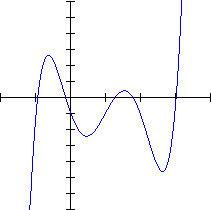*For writing news and resources, scroll down.*
A problem I see a lot:
Recently I worked with a client who I dearly hope publishes her book one day because it’s an amazing story. I told her she needed to add in more interiority — what does your character think about these things that are happening? — but she was worried about adding more words to a manuscript that was already getting quite long.
I get that. But I still wanted the interiority. So I went back to the manuscript to look for things to cut. I realized there were a lot of instances in which she could cut a scene short and, in doing so, increase suspense in the story.
For example, there was a scene where the main character asked a friend for advice with a problem. The friend told the MC to go see an old medicine woman and explained what to bring and how the old woman would help. Then, in the next scene, the MC travels through the woods at night to the medicine woman’s hut.
And here’s the problem I see a lot with my clients and writing students: a scene that tells us what’s going to happen, followed by a scene in which it happens. In this case, when the MC was on her way through the forest, I already knew where she was going and why.
What I suggested to the author was this: the main character goes to her friend and asks, “what should I do?” and then THE SCENE ENDS THERE. The next chapter opens with our MC traveling through a dark forest. We don’t know where she’s going or why. By cutting the previous scene short, we have increased suspense in the next scene.
Are you giving too much away?
Great writers trust their readers. They trust that their readers don’t need to know everything right away. That their readers like a little mystery. Ooh, where is she going in the middle of the night? Why does she have her mother’s necklace with her? Who lives in this creepy hut? How is this strange old lady going to help her? A little bit of mystery is what keeps readers reading.
Don’t tell us what’s going to happen then tell us about it happening. Now we already know and the curiosity is gone. Instead, look for places in your manuscript where you can end a scene early and thereby increase the suspense in the next scene.
That being said, there’s always an exception. It might make sense to tell what’s going to happen before it happens if things are going to go horribly wrong. To use this example, maybe the friend details how the medicine woman is going to help, but then as the MC is traveling through the forest, she gets kidnapped by a mysterious man on a horse. We thought she’d go see the medicine woman and everything would be okay, but no! Now she won’t get to see the medicine woman to solve her original problem, and she has a whole new problem.
Subverting reader expectations. That’s another good way to keep ‘em reading.
You never know who your words will touch…
I received the most delightful and unexpected email the other day.
To understand the unexpectedness, we must travel back in time to 2008 when I was getting my MFA, hitting the New Orleans dating scene, and working as an Algebra II tutor. (Algebra II is my favorite of the high school math subjects — factoring polynomials is just so much fun.)
Anyway, this led to me writing a dorky/sexy math poem based on Algebra II concepts and my dating experiences. Somehow, several years later, I managed to get this poem (“A New Graph”) published in an academic journal (The Journal of Humanistic Mathematics).
Fast forward to a few days ago, and this email appeared in my inbox:
It has been over 10 years since I read your poem in the Journal for Humanistic Mathematics. A lot of life has happened to me, but I finally am in a place to enjoy music again. Apologies for the very late reply, but here is the video of me singing my version of your poem today on pi-day:
Thank you again for your clever writing. It has stuck in a part of my brain all these years.
Bananas, right? Someone turned my math poem into a song. A poem I wrote sixteen years ago. A poem that was published over a decade ago. A poem I assumed no one cared about, and yet here’s a person who had it stuck their brain all these years.
This is one of the amazing things about sending your creative work out into the world. You never know who might read it and connect with it. You never know how your words and stories might stick in someone’s mind or heart, potentially for years! And they might never tell you. You might never know the true affect you’ve had on someone.
So take a moment to think about stories you’ve published, newsletters you’ve posted, essays you’ve written, and imagine how your words might have touched someone, might have made them smile or think or feel or, heck, maybe even sing a song. We focus so much on getting published, hitting the bestseller lists, winning awards. But that connection with another person, even if we never find out about it… this is perhaps the true reward of the creative life.

Writing News & Resources:
For All Writers:
Upcoming FREE
workshops online:Writing good interiority is so important. Luckily, there’s a workshop coming with the awesome Mary Kole: Writing Character Interiority on March 28.
From Trend to Triumph: Novels That Sold in a Tough Market. A fascinating read from
.Submit your independently published, university-published, or self-published book to the National Indie Excellence Book Awards. Deadline is March 31.
The Hedgebrook Writing Residencies for Women Application is now open (deadline April 14).
How to Get Your Book in Libraries from
. Bookmarking this article for myself, for sure!The WriteMentor Novel & Picture Book Award is now open. They are looking for unpublished and unagented writing talent in children’s, young adult, and adult fiction. Deadline: April 1.
The 24th Annual Wergle Flomp Humor Poetry Prize from Winning Writers is open. Free to submit with lots of cash prizes. Deadline: April 1.
Be sure to follow Angelique Fawns for great submission opportunities.
Mastering the Art of the Synopsis workshop with
on April 21.The Writers Center website is a GREAT resource for finding grants, fellowships, residencies & retreats, publishers (who publish non-agented authors), and literary journal opportunities.
Writing Workshops offers lots of online classes in fiction, nonfiction, poetry, picture books, and the business of writing.
Check out the meet-up group called Shut Up & Write. There are in-person chapters all over the country, as well online events.
Looking for places to submit your writing? Check out NewPages and Sub Club.
For KidLit Writers:
The WriteMentor Novel & Picture Book Award is now open. They are looking for unpublished and unagented writing talent in children’s, young adult, and adult fiction. Deadline: April 1.
The Times/Chicken House Children’s Fiction Competition is now open for unaccented and unpublished writers for a middle grade or Young Adult novel.
First prize is a worldwide publishing contract with Chicken House with a royalty advance of £10,000. Deadline: June 2.
Literary Rambles has information on kidlit agents and agent interviews. Plus contests and giveaways.
Here’s an incredible list of upcoming events for KidLit writers!
Check out SCBWI (The Society for Children’s Book Writers and Illustrators) for events, conferences, critique partners and more. (Picture book through YA.)
For Querying Writers:
Here’s a list of small publishers that do not require agents. Also,
is opening to submissions on April 3!Andrea Bartz has a list of successful query letters (including mine!).
I occasionally choose a subscriber for a FREE submission package critique. Send me your query and first two pages, and, if I chose your submission, I will send you feedback on both. Fill out the form here.
Writing Conferences & Events:
Writer’s Digest is holding their 3rd annual Mystery/Thriller Writing Virtual Conference March 21-23. Plus lots of other events and online conferences coming up!
The Women’s Fiction Virtual Summit is happening June 21-22.
The enormous AWP conference (Association of Writers and Writing Programs) will be held in Los Angeles this year, March 26-29.
If you live in the DC area, this comprehensive Calendar of Local Literary Events, compiled by Washington Independent Review of Books is overwhelming and awesome.
Live in the mid-Atlantic region and looking for a writing retreat get-away? The Writer’s Retreat at Good Contrivance Farm north of Baltimore is open year-round. The only requirement for this peaceful retreat is that you use the time to work on your writing. Spaces normally book about two months in advance.
Thinking about going to a conference or applying for a residency? Check out the free searchable database on Poets & Writers.
The James River Writers Conference in Richmond, VA will be held Oct. 4 - 6. They also have a best self-published novel contest — applications due February 28.
The Annapolis Book Festival will be held on Saturday, May 3, 2025.
The Writing Day Workshop “How to Get Published” Conferences are affordable and helpful. Plus, sign up for pitch sessions with agents for $29 a piece. For online conferences, attend from anywhere in the world! Check out the upcoming conferences:
Oklahoma Writing Workshop (Oklahoma City): March 22, 2025 (in person)
Chesapeake Writing Workshop (Arlington): March 22, 2025 (in person)
Colorado Writing Workshop (Denver): March 22, 2025 (in person)
Connecticut Writing Workshop (New Haven): March 28, 2025 (in person)
Boston Writing Workshop: March 29, 2025 (in person)
Minnesota Writing Workshop (St. Paul): April 5, 2025 (in person)
Toronto Writing Workshop: April 5, 2025 (in person)
I’m going to Bouchercon, the World Mystery Convention in New Orleans September 3-7! See you there?
Writers Digest offers loads of virtual conferences on a variety of publishing and writing craft topics.
For more writing conferences, check out this list or the free searchable database on Poets & Writers.






I love your math poem turned music story! What a great tribute to your writing and thank you for reminding us that sometimes our work affects others in unexpected and charming ways.
Timely advice! I’m trying to figure out how to do this as I edit.